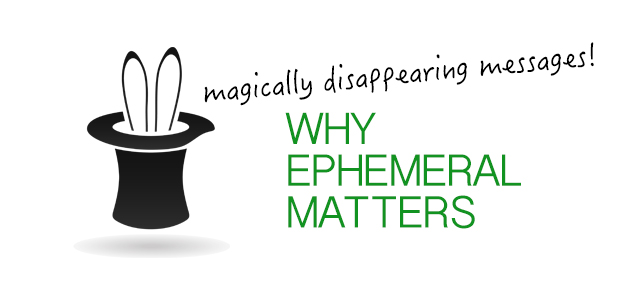Ephemeral – lasting for a very short time. “fashions are ephemeral” synonyms: transitory, transient, fleeting, passing, short-lived, momentary, brief, short
- A Snap lasts for just a few seconds. (Though Stories last a little longer, they also aren’t as popular as sending a Snap.)
- On Tinder, you swipe to the right if you want to know more about a person, swipe to the left and they are gone.
- Yik Yak is all about capturing the unfiltered thoughts of the moment. (I consider it to be the bathroom wall of the internet.) If you live somewhere where the app is active, your Yaks might only be on the site an hour before they go away.
For most adults, you roll your eyes at things like Yik Yak, Tinder, and Snapchat.
Understand this– That’s entirely the point!
RULE #1 – Teenagers and college students want to hang out where adults don’t. The less popular something is for adults, the better.
RULE #2 – Perceived anonymity and privacy is enough for what they want to do. We’re talking about a generation of app users who have grown up with their lives documented on mommy blogs, Facebook, and Instagram. They ultimately know that there is no such thing as privacy or anonymity online… that things get tracked back to them… but that’s not the point. The point is creating private space from the prying eyes of adults and/or people they don’t want to connect with. The perception of anonymity or privacy is just fine with them.
Why Ephemeral Matters
When I’m talking to parents or youth workers or school administrators they are dealing with very practical problems.
But I don’t think you can problem solve ephemeral apps without first taking the time to understand why it’s important for teenagers and what it’s in response to within our society.
- Ephemeral matters because it’s seems safer than other options. “Safer” can mean a lot of things. Safer from mom and dad, safer from creepers, safer from getting tracked back to you, on and on. Posting on Twitter or Facebook, where adults persist, is dangerous. Posting on Snapchat? Totally safer.
- Ephemeral matters because it’s just chatting. As Danah Boyd so aptly drove home in her book, It’s Complicated, American society has systematically eliminated the places teenagers used to hang out free from the prying eyes and ears of adults. (Malls, streets, casual sports, etc.) These apps matter because these become the places where they can hang out. They may have very little “free time” that you or I grew up with, these apps provide the space to just chat. (This is why taking them away is so traumatic.)
- Ephemeral matters because it’s outside of adult control. Beyond the prying eyes, beyond the deep signs, beyond the misunderstanding, beyond the control-freak-parenting-methodology… ephemeral apps are a response to all of this. It doesn’t matter because of them, it matters because of us.
- Ephemeral exists because of general isolation everyone is experiencing. Here’s a challenge. Go sit at Starbucks with a pad of paper. Sit in a corner by yourself so you can see the whole store. In a 15 minute period, make a tick for every person who is in the store, comes or goes. Next, make a tick for every time someone looks at a screen. (Phone, computer, tablet.) What you’ll likely observe is that people are generally isolated from the life in front of them because they are absorbed by the life on the small screen in their pocket. This isolation creates the need for places you can speak flippantly, without worry that what you say is going to get back to your parents or boss or whomever. We all need places where we aren’t making “official statements” or having an “official position” but just have a place to say whatever comes to mind or feels good in the moment.
- Ephemeral persists because of the neurological high. Lastly, and perhaps an area where the least is known, is this idea that apps trigger your brain to check notifications, likes, and send responses at the neurological level which can mean that you don’t know why you’re checking it or using it so much… you just are. (More on that here)
My advice? As an adult, it’s easy to just deal with the frustrations caused by things you haven’t taken the time to understand. Don’t waste your time trying to talk people out of using apps. (You’re actually increasing their desire to use them!)
Instead, take the time to understand why these apps matter to the young adults in your life. Just because you don’t get it doesn’t mean something is bad. It might mean that you need to be the learner and not the teacher.


Leave a Reply